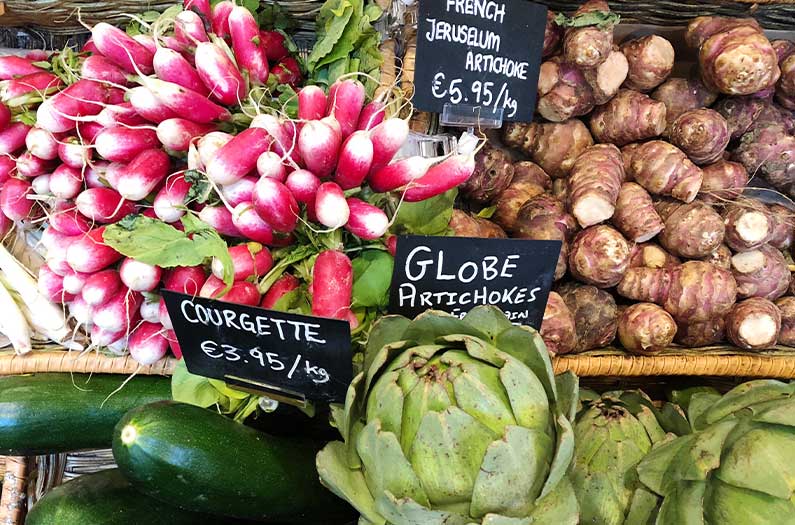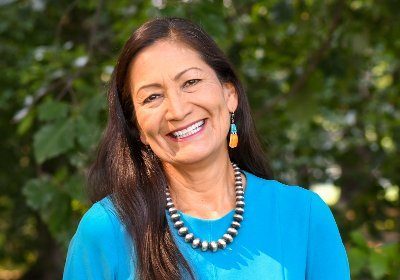A Lot of People May Be Willing to Loosen Their Purse Strings to Subsidize Greener Farming
A new study from Finland underscores the idea that food prices should reflect greener farming methods

This article is by Emma Bryce and was originally published by Anthropocene magazine.
What would you be willing to pay, to ensure your food came from a farm that doubled up to protect biodiversity and mitigate climate change?
That’s the question a group of researchers recently asked hundreds of Finnish citizens—finding that a surprisingly large majority of people would be willing to pay more for food from farms where crop diversification practices protect the soil, boost species diversity, and prevent pollution.
At national scales, consumers’ willingness to loosen their purse strings could generate significantly more money to subsidize greener farming methods, the researchers found. They believe that tapping into this latent goodwill could be one way to advance sustainable agriculture in the future.
As in many parts of the world, in Finland monocrop farming is growing more common. Research shows that the country’s farmland is suffering from a decline in soil quality, as soil organic carbon dwindles with the increasing monoculture, possibly threatening future food production. But the practice of diversifying farmland—transforming monocrops into cropland that incorporates multiple species, hedgerows and grassy edges, and embraces soil conservation methods like rotational cropping—could counteract this decline.
Such diverse cropping systems can introduce new pollinators and biological pest control to farmland, increase carbon sequestration in the soil, reduce nutrient run-off and pollution from farms, and boost soil organic carbon among other things. All of this can increase food production, too.
The recent study, which was produced by Finland’s Natural Resources Institute, grouped these ecological benefits into three scenarios, which were presented to a representative survey of 600 Finnish citizens. Participants were asked whether they would be willing to pay for these more sustainable farming scenarios, and if so, how much.
The results were immediately striking: a large total of 79% said they would be willing to pay a premium for food derived from farms where diverse cropping was underway. The majority of these positive respondents confirmed they would be willing to pay a monthly sum, per household, of 16 Euros, which amounted to €228 per household, per year. Translated to field benefits, that amount would deliver €245 per hectare of Finnish farmland each year.
For context, that’s significantly more than the €160 that’s currently paid in annual government subsidies for each hectare of organic farming in Finland. The significance of this figure also becomes clear when it’s compared to the market value of crops: the yield of barley, a common crop in Finland, is valued at €525 per hectare per year. The invisible ecosystem services that would be generated by cropland diversification are almost half of that.
These are ‘invisible’ only because the benefits of ecological farming methods currently aren’t incorporated into the market cost of food in Finland (and most other countries). But by describing their comparative worth, the researchers suggest there’s some weight to the idea that the price of food should reflect the value of sustainable farming.
But the picture isn’t entirely that simple: despite the majority who agreed they would pay extra for diversified cropping, 21% of the study’s respondents said they wouldn’t. Half of those said they couldn’t afford the extra cost. It’s a reminder that the willingness and ability to pay a premium for sustainable food will, naturally, vary by context and country. But it also highlights the problems with heaping responsibility for sustainability on consumers’ shoulders. Furthermore, a focus on consumers risks absolving governments of their responsibility to provide subsidies that encourage sustainable farming, whilst ensuring food security for all.
Ultimately, a system that relies on consumers to pay for more sustainable agriculture shouldn’t impoverish people, or create a hierarchy where only those who can afford it get good quality food.
Still, these are larger challenges that go beyond the scope of the current study, whose purpose was simply to measure consumers’ willingness to pay—and explore how that could be used to improve food systems. To this end, the researchers also wanted to know precisely what the most willing consumers valued most highly about sustainable farming. This revealed an eclectic selection of priorities—with respondents ranking greater domestic food production as the thing they most wanted to see resulting from their higher spending on greener farming methods. That was followed by decreased nutrient pollution from farmland, greater carbon sequestration in the soil, and the provision of more rural jobs.
These insights are important for crafting policies that could target consumers, the researchers write, especially if a government wants to gain consumer support for something such as a sustainability tax on farmed food. Knowing what consumers want, and what they’re prepared to sacrifice, could be one way to “fund future transition towards more sustainable food production,” they write.
In the meantime, the findings are a hopeful indication that so many consumers—in this one country, at least—believe the way we farm needs to change.
Anthropocene magazine, published by Future Earth, gathers the worlds’ best minds to explore how we might create a Human Age that we actually want to live in.
Emma Bryce is a journalist based in London. As well as Anthropocene, her work has appeared in The Guardian, Wired Magazine UK, Audubon Magazine, The New York Times, Ensia, and Yale e360.
Source: Latvala et. al. “Evaluating Non-Market Values of Agroecological and Socio-CulturalBenefits of Diversified Cropping Systems.” Environmental Management. 2021.






















